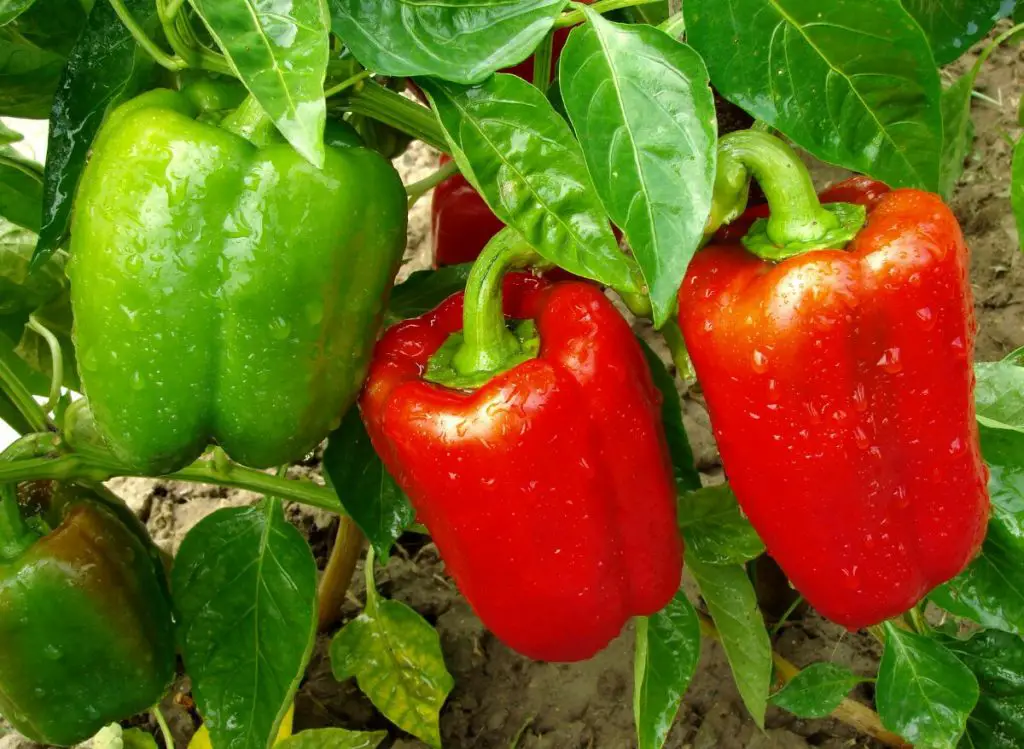
Planting hot peppers in your small gardens is a good idea; however, this task needs great patience. Normally, the germination time of pepper seeds under ideal conditions is 2 to 3 weeks.
But if these seeds don’t germinate even after waiting for this time, what will be your reaction? Most likely, you might wonder how to speed up pepper seed germination?
Pepper seeds need an optimal environment to germinate properly. Certain reasons may lead to the late or delayed germination of pepper seeds.
Keep reading if you find it hard to grow your peppers or are getting unsatisfactory results. This article will equip you with tips on how to speed up pepper seed germination. Also, we will touch on some reasons that may lead to slow germination.
See also: Successfully Planting And Growing Pepper Seeds Indoors: An Ultimate Guide.
How Long Does It For Pepper Seeds To Germinate?
Generally, pepper seeds take 1 to 2 weeks to germinate, but they can extend to 3 or 4 weeks for hotter varieties such as ghost peppers or seeds over a year old. Certain types may take longer, but most seeds should germinate within ten days under ideal conditions.
The longer the seeds take to sprout, the higher the risk of developing mold, fungus, and other issues. It is essential to speed up the process and increase the chances of germination of each seed.
Why Do Pepper Seeds Really Take So Long To Germinate?
It will be a strange experience if your pepper seeds don’t sprout properly even after the recommended time. Certain reasons may lead to the slow sporting of these seeds.
Here are some reasons that may result in the slow germination of the pepper seeds. Check out if your seeds are also encountering any of these reasons.
1- Temperature Issue
Proper temperature is the foremost thing that helps in the proper growth of the pepper seeds. The normal temperature for the proper growth of these seeds is 60 degrees Fahrenheit (about 16 degrees Celsius). If the temperature falls or increases from this temperature, the seeds will germinate slowly or may not germinate at all.
If the seed manages to sprout, it will remain either too short or will feature any other abnormality. Not only the low temperature, but high temperature will also lead to a poor germination process if the temperature exceeds the limit of 95°F, it will also affect the growth of the seeds.
| Temperature | Temperature ( in Fahrenheit) | Temperature (in Celsius) |
| Minimum temperature | 60 | 16 |
| The ideal temperature for pepper seeds germination | 65 to75 | 18 to 24 |
| Maximum temperature | 95 | 35 |
2- Poor Irrigation
Another thing that may lead to slow or improper growth of the pepper seeds is poor watering. If the soil where seeds are planted is too wet, it will not allow proper ventilation. When the seeds do not get proper air, they will fail to germinate properly.
Also, excessive water will lead to mold growth that will affect germination. On the other hand, if the soil is too dry, it will cause the death of the sensitive pepper seeds.
Also, the low water will not provide the seeds with enough moisture to sprout. All these reasons will lead to poor or no germination of the seeds.
Pro Tip: You can use a spray bottle to improve soil moisture balance.
3- Over Aged Seeds
Older seeds will grow slower than fresh ones. If seeds are too old, they will not germinate at all. Normally, these seeds can grow up to 5 years of storage. However, the older they become, the slower their growth will be.
If they are too old to grow, they will not sprout at all. Usually, 2 years old seeds grow effectively, while those after 5 years will not germinate properly.
Depending on the seeds’ temperature, moisture, and age, most pepper seeds can take between 1 to 3 weeks to germinate. Also, keep in mind that hotter pepper varieties will typically take longer to germinate.
Both germination rate and seed viability can decrease with the age of the seed. Viability means the seed’s ability to produce a vigorous seedling. Viability generally decreases before germination rates reduce, meaning that old seeds can germinate yet still grow weak seedlings, according to Johnny’s Selected Seeds.
Pro Tip: Make sure your seeds are fresh or stored for less time (less than 2 years).
See also: Can Successfully Peppers Grow In Indirect Sunlight? (Find out now!)
What Helps Peppers Grow Faster?
If you notice that your pepper seeds are not properly germinating, you can go for certain strategies to make them grow faster. Here are some tips to make them grow faster.
1- Maintain Proper Temperature
If you succeed in maintaining the ideal temperature for the growth of your pepper seeds, your seeds will grow faster. The ideal temperature for their growth is 65°F to 75°F.
The minimum temperature at which these seeds can germinate is 60°F, while the maximum temperature that pepper seeds can tolerate is 95°F.
Poor watering is one reason that may disturb the soil temperature. Water your pepper plants properly to help the seeds grow effectively.
Pro Tip: If the temperature is too low, you can use the heat mat. Heat mats keep checking the soil temperature regularly and add a little heat in case of low heat.
2- Proper Watering
If you control the proper watering of your pepper seeds, you’ll succeed in maintaining the optimal temperature for their growth. So, make sure that you water your pepper seeds properly to make their growth faster.
If you can’t manage to water them regularly, use a Bootstrap tray or a humidity dome. Both these outlets will help to keep the soil humid to make the pepper seeds grow effectively.
Pros Tips For Watering Pepper Plants:
- Ensure you soak the soil thoroughly at least once a week, mainly if the pepper plants do not receive one inch (2.54 cm) of rain every week.
- If you have sandy soil, it is essential to water more often than once a week.
- See also: How To Start Broccoli Indoors: (a step-by-step guide)
3- Manage Proper Ventilation
Proper aeration is necessary for proper and faster seed growth. If you are using a humidity dome, make sure that it features proper ventilation.
If you are not using a dome, make sure that the seeds get proper air to grow effectively.
4- Use a Seed Starter Mix
A seed starter mix is a prepared soil mixture that has all the essential nutrients. These nutrients help in the fast germination and growth of the pepper seeds. Use these starter mixtures to make the seeds grow faster.
When the seeds are grown enough, shift them to the nutrient-rich soil. They will grow faster relatively.
To allow you to get a longer growing season and minimize the risk of losing your seeds or plants to frost, the University of Minnesota Extension recommends you start pepper seeds indoors eight weeks before transplanting outside.
See also: Can Tomatoes Grow Well In Indirect Sunlight? (Let’s find out the truth)
How To Speed Up Pepper Seed Germination
You can help your pepper plants germinate faster by providing them with the right conditions. Here are a few tips to help your pepper germinate faster:
- Soak your pepper seeds
- Plant new pepper seeds and avoid old seeds.
- Plant your pepper seeds at the appropriate time.
- Use appropriate spacing and depth for pepper seeds
- Water your pepper seeds adequately
1- Soak Your Pepper Seeds
Pepper seeds need to soak in water before they can start to germinate. Soaking pepper seeds before planting them can speed up germination. When you soak your pepper seeds before planting, they get a chance to absorb the water they need to germinate, therefore giving them a head start.
One option is to soak your pepper seeds in water for a day; if you leave them in the water much longer than this, the seeds might rot.
Alternatively, you can use a wet paper towel to wrap the pepper seeds. And then, place the whole thing in a zip-lock bag and leave it in a warm place.
Placing the seeds in a wet paper towel will speed up the process of planting pepper seeds indoors and ensure that all of your seeds sprout.
Pro Tip: You can speed up the pepper germination process by putting the seeds in a wet paper towel and then placing them into a plastic bag.
2- Plant New Pepper Seeds And Avoid Old Seeds
Generally, seeds’ age can also influence germination rate and time to germination. Seeds more than 1 to 2 years old will have a lower germination rate.
The older the seeds, the less likely they will germinate, which means if your pepper seeds are too old, you may not get any seeds to sprout. Typically, using more than 1 or 2 years old seeds will lower your germination rate.
See also: How Much Light Do Your Lettuce Plants Need to Grow Indoors?
3- Plant Your Pepper Seeds at The Appropriate Time
Like anything in life, proper timing is essential. Planting your pepper seeds too early can leave them or the seedlings susceptible to a harsh frost. At the same time, planting pepper seeds too late can subject them to an early fall frost.
Soil temperature significantly impacts seed germination rate and time to germination. Ensure you check the last frost dates to determine when to start seeds indoors and transplant them outdoors. And wait until the snow is complete before you transplant your peppers and the soil in good condition.
Pro Tip: Before transplanting your peppers outdoors, ensure you check the weather forecast in your location and only transplant when weather conditions are favorable.
4- Use Appropriate Spacing And Depth For Pepper Seeds
If you plant your pepper seeds too shallow or too deep, they may germinate slowly or not at all. The ideal depth is ¼ to ½ inch for pepper seeds.
It is best to plant each seed individually in its cell in a seed tray when planting pepper seeds.
If the seedlings get too big for their cells, you can transplant each into a small container to grow until they are warm enough to go outside.
Keep your seedlings 18 to 24 inches (1.5 to 2 feet) apart; recommend the University of Minnesota Extension.
Properly spacing your pepper seeds will give them enough room and avoid competition among them as they grow.
In addition, properly spacing your plant peppers will help you maintain your garden, including soil maintenance, watering and fertilizing, weeding, and harvesting your plants.
5- Water Your Pepper Seeds Adequately
Pepper seeds require enough moisture to germinate and grow properly. Keep the soil moist but not waterlogged after planting your pepper seeds.
Do Pepper Seeds Need Light To Germinate?
Pepper seeds can germinate even in low light or indoor environments. However, the pepper seedlings will need to be shifted to the light for proper growth.
See also: 16 Best Vegetable Gardening Books To Check Out!
Final Thoughts
Pepper seeds take relatively more time to germinate and grow. Even after their germination, they will need a proper surrounding environment to grow faster. So, you should be patient in their case.
However, sometimes, their growth may slow down to a very low level. If you notice that your seeds are not growing faster, you may go for the above-mentioned tips to make them germinate and grow faster.


